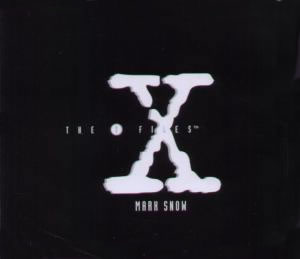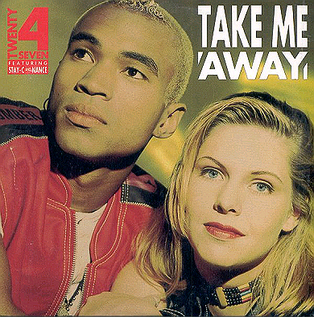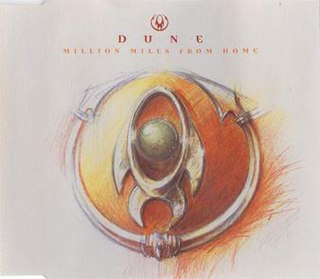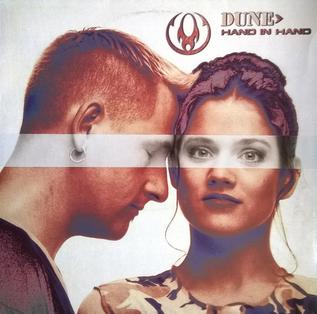
"Who Wants to Live Forever" is a song by the British rock band Queen. A power ballad, it is the sixth track on the album A Kind of Magic, which was released in June 1986, and was written by lead guitarist Brian May for the soundtrack to the film Highlander. Queen was backed up by an orchestra, with orchestrations by film score composer Michael Kamen. The song peaked at No. 24 in the UK charts. In 1991, it was included in the band's second compilation album, Greatest Hits II.

"The Big L." is a song by Swedish pop duo Roxette. Written by Per Gessle, it was released on 26 August 1991 by EMI as the third single from their third studio album, Joyride (1991). The song became a top ten hit in Belgium, Ireland and Sweden, and was the highest-charting single released from Joyride in France. It also reached the top twenty in a number of other countries, including Australia, Austria, Finland, Germany, the Netherlands, Spain and Switzerland. Despite a US radio mix of the song appearing on CD versions of the single, it was never released as a single in North America.

"Leave a Light On" is a song written by Rick Nowels and Ellen Shipley, produced by Nowels for American rock singer Belinda Carlisle's third solo studio album, Runaway Horses (1989). It was released as the album's lead single in September 1989; in Japan, "(We Want) The Same Thing" was issued as the lead single concurrently with "Leave a Light On" the following month. The single narrowly missed the top 10 in the United States, peaking at number 11. It fared better elsewhere, reaching the top five in several countries, including Australia, Austria, Canada, Ireland, and the United Kingdom. The song's music video was directed by Peter Care.

"First Time" is a song by American singer Robin Beck from her second album, Trouble or Nothin' (1989). The song was released as a single in July 1988 and was originally recorded for a Coca-Cola commercial in 1987. In the United Kingdom, the power ballad climbed to No. 1 and spent three weeks there in November and December 1988, spending 14 weeks on the UK Singles Chart in total. The song additionally reached number one in Austria, Greece, Ireland, the Netherlands, Norway, Switzerland, and West Germany. Despite being also released as a single in the US and critically praised by Billboard, it failed to chart due to business political differences between Mercury Records and Coca-Cola wanting to promote either First Time or Save Up All Your Tears, according to Beck's interview with Rock Eyez in 2009.

"Cherish" is a song by American R&B band Kool & the Gang, released in May 1985. It was the third single released from the band's sixteenth studio album, Emergency. It was certified Gold by the RIAA and held the number 1 position on Billboard's Adult Contemporary chart for six weeks running. It would ultimately rank as the biggest Adult Contemporary chart hit of the 1980s.

"Let There Be Love" is a song by Scottish rock band Simple Minds and first single from their ninth studio album, Real Life (1991). The song was written by Charlie Burchill and Jim Kerr and released by Virgin Records on 11 March 1991. The song became an international hit, reaching the top 10 in Ireland, Denmark, Belgium, Greece, the Netherlands, Sweden, Switzerland, and the United Kingdom. It was the most successful in Italy, where it peaked at number one. The official music video for the song was directed by Andy Morahan.

"Sex Bomb" is a song by Welsh singer Tom Jones. Performed in collaboration with German DJ and record producer Mousse T., the song was released in 1999 in several European countries; in January of the following year, it was issued across the rest of Europe except the United Kingdom, where it was not released until May 2000. Outside the UK, the track served as the second single from Jones' 34th album, Reload, while in the UK, it served as the fourth single.

"The X-Files" is an instrumental written and produced by American film and television composer Mark Snow. On its parent album, The Truth and the Light: Music from the X-Files, the track is titled "Materia Primoris". It is a remixed version of the original theme Snow composed for the science fiction television series The X-Files in 1993. The composition was released as a single in 1996 and achieved chart success, particularly in France, where it reached number one on the SNEP Singles Chart. The composition has since been covered by many artists, including DJ Dado and Triple X; DJ Dado's version was a major hit in Europe while Triple X's version reached number two in Australia.

"Don't Worry" is the debut solo single of English musician Kim Appleby from her self-titled debut solo album (1990). This was Appleby's first solo-single after the death of her sister Mel. The song addresses the process of getting over being heartbroken. With the aid of her then boyfriend, ex-Bros bassist Craig Logan, Kim launched a solo career with much of her debut solo album composed of songs co-written with Mel, for what was intended to be the next Mel and Kim album. The new album showed Appleby in a more prominent, soulful role, although the tongue-in-cheek humour of Mel & Kim still remained.

"Love Changes (Everything)" is a 1987 single by British pop duo Climie Fisher that gained international success after a re-release in 1988. The song was later covered and released by house music duo Musikk. Songwriters Simon Climie, Dennis Morgan and Rob Fisher received the 1988 Ivor Novello award for Best Song Musically and Lyrically.

"United" is a song recorded by Dominican-American reggae/ragga recording artist Prince Ital Joe and American rapper Marky Mark. It was released in March 1994 as the third single from their debut album, Life in the Streets (1994). The song was co-written and produced by Alex Christensen and Frank Peterson. It reached number one in Germany and the top 10 in Austria, Denmark, Finland, Lithuania, the Netherlands, Sweden, and Switzerland.

"Take Me Away" is a 1994 song recorded by Dutch group Twenty 4 Seven. It was released as the third single from their second album, Slave to the Music (1993). Unlike previous singles from the album, the song did not feature any raps. The single achieved success on the charts in Europe, but didn't perform on the charts in the US.

"Cult of Snap" is a song recorded by German Eurodance group Snap!. It was released in September 1990 as the third single from their debut studio album, World Power (1990). The song reached No. 1 in Spain for four weeks and it also peaked at No. 2 in Austria and Zimbabwe. Snap! performed the song on the British TV show Top of the Pops.

"Mega Mix" is a song by German Eurodance group Snap!. It was released as a single only and comprises the four previous singles taken from their first studio album, World Power (1990). The songs in order of the mega mix are; "Ooops Up", "The Power", "Cult of Snap", and "Mary Had a Little Boy". The song is included on their 1996 album, Snap! Attack: The Best of Snap!.

"It Will Make Me Crazy" is a song by British DJ and producer Francis Wright, known under the pseudonym of Felix. It was released in October 1992, as the second single from his debut album, #1 (1993), and features vocalist Steele, also known as Sam Brown. The song topped the chart in Finland and reached the top-5 in Switzerland, Ireland and Germany. Additionally, it was also a top-10 hit in Austria, Belgium, Denmark, the Netherlands, Sweden and Switzerland. In the UK, it peaked at number 11 and on the Eurochart Hot 100, it reached number seven. Outside Europe, the single peaked at number 14 in Israel and number 55 in Australia. Its music video was directed by Lindy Heymann.

"Take Control" is a 1993 song by Swiss artist DJ BoBo, taken from his first album, Dance With Me (1993). It features vocals by singer Christiane Lupp and was a top 10 hit in Austria and Switzerland. Additionally, it peaked within the top 20 in Finland, Germany and the Netherlands. On the Eurochart Hot 100, the song reached number 21. Outside Europe, it was very successful in Israel, peaking at number two. It sold to gold in Germany.

"Keep on Dancing!" is a song by Swiss artist DJ BoBo, taken from his debut album, Dance With Me (1993). It features vocals by Turkish-Swiss singer Emel Aykanat and was released in June 1993 via various labels as the follow-up to his successful 1992 hit single "Somebody Dance with Me". The song was both co-written and co-produced by René Baumann with Daniel Peyer, Gutze Gautschi and Mark Wyss. It was a number-one hit in Finland and charted in Europe, Australia and Israel. "Keep on Dancing!" earned a gold record in Germany.

"Million Miles from Home" is a 1996 song by German band Dune, released on the group's second album, Expedicion (1996). It is sung by Verena von Strenge and peaked at number 10 in the Netherlands and number 17 in Germany. Additionally, it reached number 39 in Switzerland and number 40 in Sweden. On the Eurochart Hot 100, it peaked at number 61 in October 1996. A music video was produced to promote the single. It sees von Strenge alone on a planet in the outer space.

"Hand in Hand" is a song by German band Dune, released in 1996 by Orbit Records as the second single from the group's second album, Expedicion (1996). The song is produced by Bernd Burhoff and Jens Oettrich, who also co-wrote its lyrics with Oliver Froning. The vocals are performed by Verena von Strenge. "Hand in Hand" was a notable hit in Europe, entering the top 10 in Germany (10) and the Netherlands (7). In Switzerland, it was a top 20 hit (18), while entering the top 40 in Austria (39). The song also charted in Scotland (86) and the UK (77). Its music video was directed by Swedish-based director Matt Broadley. It references the Pied Piper of Hamelin.

"Can't Stop Raving" is a song by German electronic group Dune, released in 1995 by the labels Urban, Impulse and Max Music as the third and last single from the group's debut album, Dune (1995). The female vocals are performed by Tina Lagao and Janine Kelly-Fiddes. The song achieved moderate success in Europe, entering the top 10 in Germany (7), the Netherlands (9) and Spain (4). Additionally, it was a top 20 hit in Switzerland (16). Its accompanying music video was directed by Delano Sookha. The album version of "Can't Stop Raving" was used as theme music on Joel Veitch's Tales of the Blode.




















